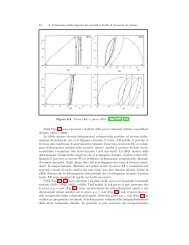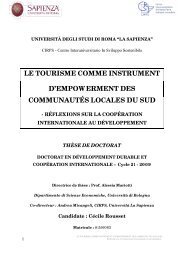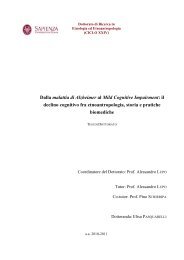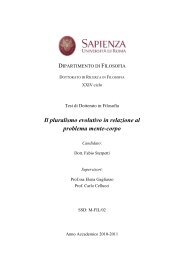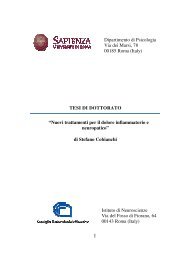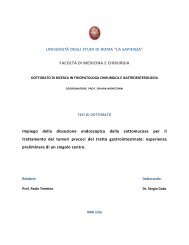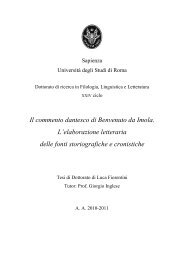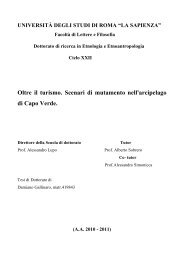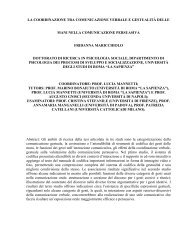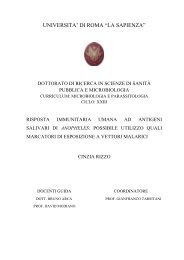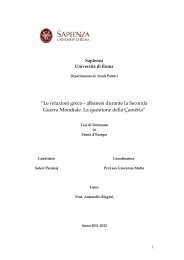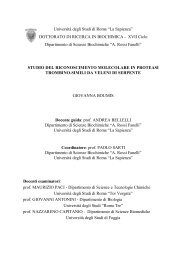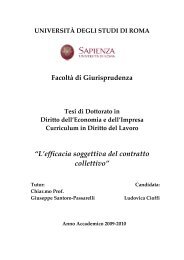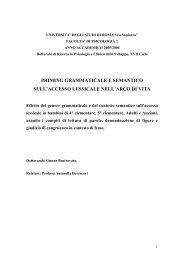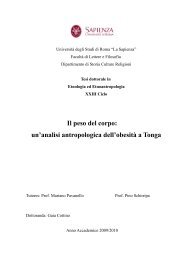You also want an ePaper? Increase the reach of your titles
YUMPU automatically turns print PDFs into web optimized ePapers that Google loves.
108<br />
Capitolo secondo<br />
ferire valore politico alla guerra da loro combattuta, attivando nuova-<br />
mente quel meccanismo di identificazione tra guerra e azione politica 121 .<br />
L’azione di Antigone è invece un gesto parlato. È la voce che dà<br />
senso all’azione. Ciò è particolarmente vero nel teatro di parola, e ancora<br />
di più nel teatro epico di Brecht. Nella sua rielaborazione dell’Antigone è<br />
mantenuto il verso di Hölderlin “Confesso che l’ho fatto e non lo ne-<br />
go” 122 , che <strong>per</strong>altro è fedele al testo di Sofocle. Ugualmente Hannah<br />
Arendt:<br />
Speechless action would no longer be action because there<br />
would no longer be an actor, and the actor, the doer of deeds, is<br />
possible only if he is at the same time the speaker of words. The<br />
action he begins is humanly disclosed by the word, and though<br />
his deed can be <strong>per</strong>ceived in its brute physical appearance<br />
without verbal accompaniment, it becomes relevant only<br />
through the spoken word in which he identifies himself as the<br />
actor, announcing what he does, has done, and intends to do. 123<br />
121 In effetti, il riferimento ad Achille come incarnazione di questa unione di<br />
grandi gesta e grandi discorsi può stupire, se pensiamo alla guerra di Troia da un<br />
punto di vista contemporaneo. Ma Arendt sottolinea che il tempo degli eroi omerici<br />
precede la fondazione della polis, e quindi la nascita della politica come da lei è intesa.<br />
Nell’Iliade, tuttavia, è già in voga quella pratica che sarà tipica delle città-stato<br />
greche, che dava all’individuo l’opportunità di mostrare il suo valore confrontandosi<br />
con il resto della comunità.<br />
122 Cfr. BERTOLT BRECHT, Antigone di Sofocle, cit., p. 141. Per il verso tedesco “Ich<br />
sage, dass ich’s tat und leugn’ es nicht” Cfr. Brechts Antigone des Sophokles, cit., p. 92,<br />
v. 353 e anche SOPHOKLES/HÖLDERLIN, Antigone, Frankfurt am Main-Leipzig: Insel,<br />
1989, p. 41.<br />
123 HANNAH ARENDT, The Human Condition, cit., pp. 178-179.



